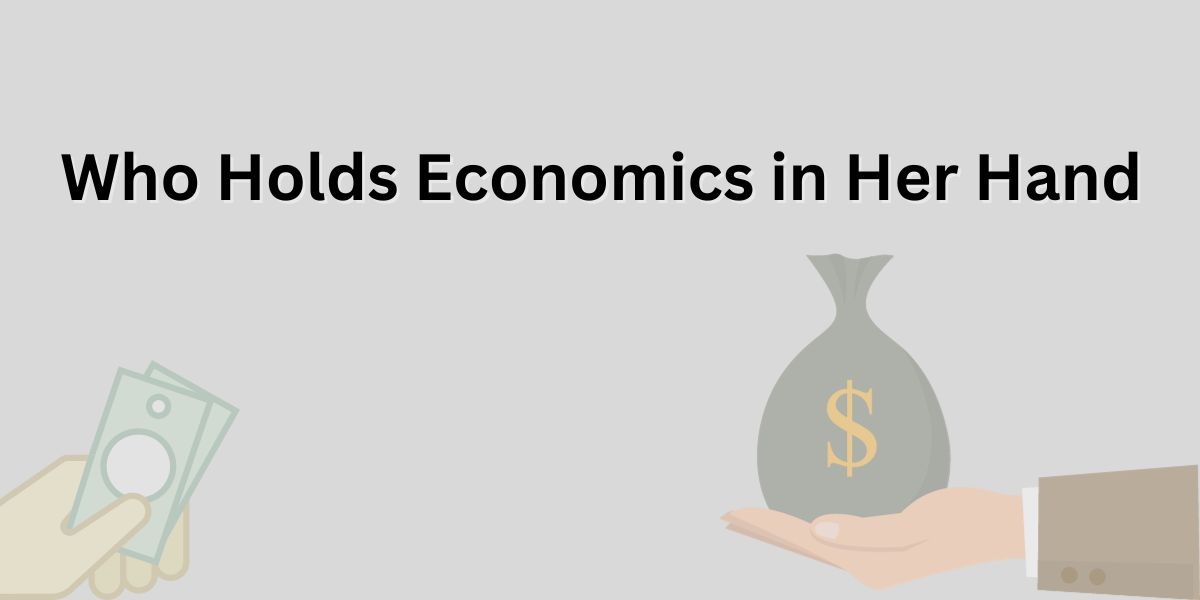Economics, often perceived as a male-dominated field, has undergone a transformative journey shaped by the hands of remarkable women. From historical figures who laid the foundation to modern influencers breaking barriers, women have played a crucial role in shaping economic policies and perspectives. This article delves into the historical and contemporary narratives, exploring challenges, success stories, and the path toward achieving gender balance in economics.
Historical Perspective
Economic history is replete with the contributions of women who defied societal norms to shape economic policies. Notable figures like Joan Robinson and Elinor Ostrom challenged conventional wisdom, paving the way for future generations of women economists. Their resilience and intellect debunked stereotypes, proving that economics knows no gender boundaries.
Modern Influencers
In the 21st century, women continue to make waves in the economic landscape. Figures like Janet Yellen and Christine Lagarde command global economic institutions, bringing fresh perspectives and innovative approaches. Their influence extends beyond numbers, shaping the discourse on economic matters and inspiring aspiring economists worldwide.
Challenges Faced by Women in Economics
However, the journey for women in economics hasn’t been without challenges. Gender disparities persist, affecting not only representation but also the quality of economic decision-making. It’s essential to address these obstacles to ensure a more inclusive and robust economic landscape.
Breaking Stereotypes
Breaking gender stereotypes is crucial for the evolution of economics. The belief that certain roles are reserved for specific genders hampers progress. Diverse perspectives foster a richer understanding of economic dynamics, leading to more comprehensive and effective policies.
Educational Initiatives
Education plays a pivotal role in fostering gender equality in economics. Initiatives encouraging young women to pursue economic studies and careers are essential. By dismantling preconceived notions and providing equal opportunities, we pave the way for a more diverse and equitable economic future.
The Intersectionality of Gender and Economics
It’s vital to recognize the intersectionality of gender with other factors like race and socio-economic status. Inclusive discussions that consider diverse perspectives result in more comprehensive and equitable economic policies.
The Power of Representation
Having women in influential economic positions is more than a symbolic gesture. It influences policy-making and economic outcomes positively. Representation matters, and fostering an environment where women can thrive economically benefits society as a whole.
Future Trends
The integration of women in economic roles is an evolving trend. As societal norms shift, so does the landscape of economics. Anticipating these changes and understanding their implications is vital for staying at the forefront of economic discussions.
Achieving Balance
Striving for gender balance in economic decision-making is not just an ethical imperative; it’s an economic necessity. Studies show that diverse teams lead to better decision-making and improved outcomes. Achieving this balance is not just beneficial for women but for society and the economy at large.
Kotak Small Cap Fund: Unleashing Growth and profit
Personal Reflections
As we navigate the intricacies of women holding economics in their hands, it’s essential to reflect on our personal biases and preconceived notions. Engaging with the topic on a more personal level allows for a deeper connection and understanding.
Empowering the Next Generation
Empowering the next generation of women in economics requires concerted efforts. Mentorship programs, support networks, and initiatives that provide guidance and resources can pave the way for a more inclusive future.
Conclusion
In conclusion, the hands that hold economics are diverse and capable. Women have been, and continue to be, instrumental in shaping economic policies and perspectives. Recognizing their contributions, addressing challenges, and actively working towards gender equality in economics ensures a more vibrant and inclusive future.
FAQs
Q1:Why is gender balance important in economics?
A1:Gender balance brings diverse perspectives, leading to better decision-making and economic outcomes.
Q2: Who are some pioneering women in economics?
A2: Joan Robinson, Elinor Ostrom, Janet Yellen, and Christine Lagarde are notable figures.
Q3: What challenges do women face in the field of economics?
A3: Women often face gender disparities, bias, and limited representation in economic roles.
Q4: How can individuals contribute to gender equality in economics?
A4: Individuals can support educational initiatives, advocate for policy changes, and promote workplace diversity.
Q5: Where can I get more information on women in economics?
A5: Explore reputable sources, educational institutions, and organizations dedicated to promoting gender equality in economics.



